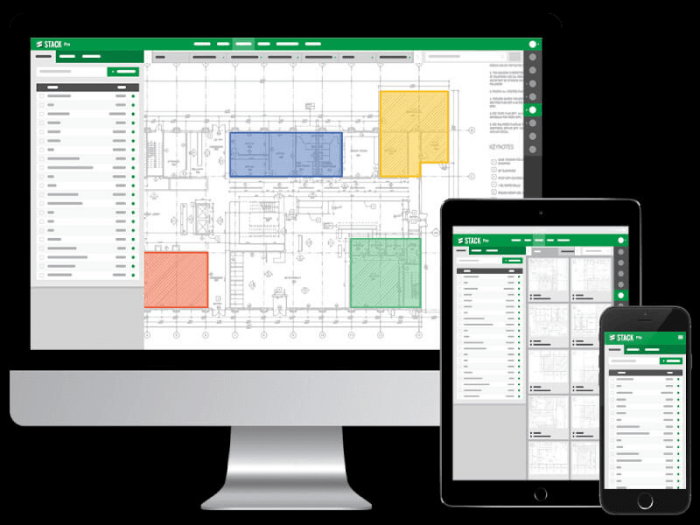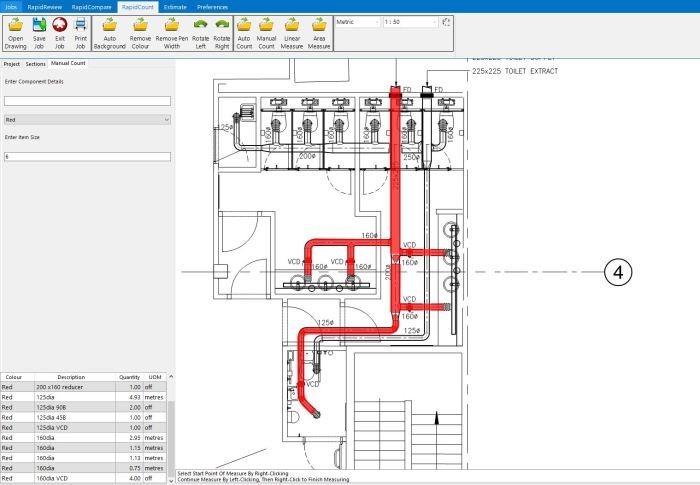In the modern world, where comfort and energy efficiency are paramount, HVAC software has emerged as an indispensable tool for residential properties. These innovative solutions empower homeowners with unprecedented control over their heating, ventilation, and air conditioning systems, unlocking a world of benefits that enhance daily living.
HVAC software offers a comprehensive suite of features and functionalities tailored to the specific needs of residential properties. From remote temperature control and scheduling to energy monitoring and fault diagnostics, these software solutions provide homeowners with a wealth of insights and control, empowering them to create a more comfortable, efficient, and cost-effective living environment.
HVAC Software Overview

HVAC software is designed to assist homeowners and contractors in managing and optimizing residential heating, ventilation, and air conditioning (HVAC) systems. It offers various benefits, including:
- Enhanced Efficiency: Software analyzes system performance, identifies inefficiencies, and provides recommendations to improve energy usage and reduce operating costs.
- Preventive Maintenance: Automated alerts and reminders ensure regular maintenance, extending equipment life and preventing costly repairs.
- Remote Monitoring: Remote access allows homeowners to monitor and adjust system settings from anywhere, ensuring comfort and peace of mind.
Common features and functionalities of HVAC software include:
- Equipment Management: Tracks equipment details, maintenance history, and warranty information.
- Energy Analysis: Monitors energy consumption, identifies areas for improvement, and generates reports for tracking progress.
- Scheduling and Alerts: Automates maintenance schedules and sends alerts for upcoming tasks, filter changes, and potential issues.
HVAC software is available in various types:
- Standalone Software: Installed on a single computer or device, offering basic features and limited integration.
- Cloud-Based Software: Accessible from any internet-connected device, providing real-time monitoring and remote access.
- Integrated Solutions: Part of a broader home automation system, allowing for seamless control and integration with other smart devices.
Key Considerations for Selecting HVAC Software
Choosing the right HVAC software is crucial for maximizing efficiency, optimizing performance, and delivering exceptional customer service. Here are some key factors to consider:
Features
Evaluate the software’s functionality and ensure it aligns with your business needs. Consider features such as:
- Load calculation capabilities
- Equipment sizing and selection tools
- Proposal and estimate generation
- Scheduling and dispatching
- Inventory management
Cost
Determine the software’s pricing model and ensure it fits your budget. Consider both upfront costs and ongoing subscription fees.
Ease of Use
Choose software that is intuitive and easy to navigate. Consider the user interface, training requirements, and technical support available.
Support
Ensure the software vendor provides reliable support and maintenance. Consider factors such as response time, availability of resources, and access to updates.
Software Demos and Trials
Conduct thorough software demos and trials to evaluate its functionality and usability. This will allow you to make an informed decision before purchasing.
By carefully considering these factors, you can select HVAC software that meets your specific requirements, enhances productivity, and improves customer satisfaction.
3. Implementation and Integration
Implementing HVAC software involves a systematic approach to ensure seamless integration with existing systems and efficient operation.
To begin, gather requirements from stakeholders, including HVAC technicians, maintenance personnel, and facility managers. This step helps identify the specific needs and expectations for the software.
System Configuration
Configure the software according to the gathered requirements, including system parameters, equipment specifications, and control strategies. This step ensures that the software aligns with the specific needs of the property.
Data Integration
Integrate the software with existing systems, such as building management systems (BMS) or energy management systems (EMS). This integration enables data sharing and centralized control, improving efficiency and reducing operational costs.
Challenges and Mitigation
- Data Compatibility: Ensure data compatibility between the software and existing systems to facilitate seamless integration.
- User Training: Provide comprehensive training to users to ensure proficiency in operating and maintaining the software.
- Cybersecurity: Implement robust cybersecurity measures to protect sensitive data and prevent unauthorized access to the software.
Benefits and ROI of HVAC Software
HVAC software offers numerous advantages for residential properties, including significant energy savings, improved comfort levels, and reduced maintenance costs. By optimizing HVAC system performance, homeowners can enjoy a more comfortable and energy-efficient living environment while minimizing expenses.
Energy Savings
HVAC systems account for a significant portion of residential energy consumption. HVAC software can optimize system operation to reduce energy usage. By analyzing real-time data, the software can adjust temperature settings, fan speeds, and other parameters to ensure optimal efficiency.
This can result in energy savings of up to 30%, translating into lower utility bills for homeowners.
Improved Comfort
HVAC software helps maintain a consistent and comfortable indoor temperature. By monitoring indoor conditions and adjusting system settings accordingly, the software ensures optimal comfort levels throughout the home. This can alleviate issues such as uneven temperatures, drafts, and humidity problems, creating a more enjoyable living environment.
Reduced Maintenance Costs
HVAC software can detect potential system issues early on, allowing for timely repairs and maintenance. By monitoring system performance and alerting homeowners to potential problems, the software helps prevent costly breakdowns and repairs. This proactive approach can extend the lifespan of the HVAC system and minimize maintenance costs.
Long-Term Value
Investing in HVAC software is a wise decision that provides long-term value for residential properties. The energy savings, improved comfort, and reduced maintenance costs add up to significant savings over time. Moreover, a well-maintained HVAC system enhances the overall value of the property, making it more attractive to potential buyers.
Case Studies
Numerous case studies have demonstrated the positive impact of HVAC software on residential properties. For instance, a study by the American Council for an Energy-Efficient Economy (ACEEE) found that homeowners using HVAC software reduced their energy consumption by an average of 15%. Another study by the U.S.
Department of Energy showed that homes with HVAC software experienced a 12% reduction in maintenance costs.
Emerging Trends and Innovations

The HVAC industry is undergoing a period of rapid transformation, driven by the convergence of several emerging technologies. These include the Internet of Things (IoT), artificial intelligence (AI), and cloud computing.
IoT and Smart Homes
The IoT is connecting an ever-increasing number of devices to the internet, including HVAC systems. This allows homeowners to control their systems remotely, monitor their energy usage, and receive alerts about potential problems. Smart home devices can also be integrated with other systems in the home, such as security systems and lighting, to create a more seamless and efficient living experience.
AI and Machine Learning
AI and machine learning are being used to improve the efficiency and performance of HVAC systems. AI-powered algorithms can analyze data from sensors to identify patterns and trends, and then make adjustments to the system to optimize its performance. This can lead to significant energy savings and improved comfort levels for homeowners.
Cloud Computing
Cloud computing is making it easier for HVAC contractors to manage and maintain their systems. Cloud-based software can be accessed from anywhere, which allows contractors to remotely monitor and diagnose problems. Cloud-based software also makes it easier for contractors to share data with customers and other stakeholders.These
emerging trends and innovations are having a significant impact on the HVAC industry. They are making systems more efficient, more convenient, and more affordable for homeowners. As these technologies continue to develop, we can expect to see even more innovation and disruption in the HVAC industry in the years to come.
Conclusion
In conclusion, HVAC software for residential properties is a transformative technology that empowers homeowners to take control of their indoor environment. Its myriad benefits, ranging from enhanced comfort and energy savings to reduced maintenance costs, make it an invaluable investment for any homeowner seeking to optimize their living space.
As the industry continues to evolve, driven by emerging trends and innovations, the future of HVAC software holds even greater promise, promising to deliver even more advanced and user-friendly solutions that further enhance the comfort and efficiency of residential properties.
Helpful Answers
Is HVAC software difficult to use?
No, most HVAC software solutions are designed to be user-friendly and accessible to homeowners of all technical abilities. They feature intuitive interfaces and clear instructions, making them easy to set up and operate.
Can HVAC software integrate with other smart home devices?
Yes, many HVAC software solutions offer seamless integration with other smart home devices, such as thermostats, lighting systems, and security cameras. This integration allows for centralized control and automation, creating a more cohesive and efficient smart home ecosystem.
Does HVAC software require a professional to install?
In most cases, no. HVAC software is designed to be self-installed by homeowners. The software typically comes with detailed instructions and support resources to guide users through the installation process.
How much does HVAC software cost?
The cost of HVAC software varies depending on the features and capabilities offered. There are both free and paid options available, with paid software typically offering more advanced functionality and support.